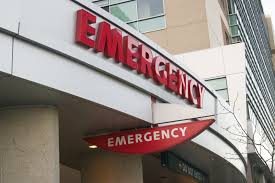 You may have heard about some of the changes in how hospitals are reimbursed under the Affordable Care Act (ACA). For instance, hospitals actually are financially penalized if too many of their recently discharged Medicare patients return to the hospital too soon. Most of these repeat visits come by way of the emergency room. I am not going to tell you about what hospitals are doing to keep people from being readmitted inappropriately, but I will share with you when it really can be better for an older adult to avoid the ER for their own health reasons.
You may have heard about some of the changes in how hospitals are reimbursed under the Affordable Care Act (ACA). For instance, hospitals actually are financially penalized if too many of their recently discharged Medicare patients return to the hospital too soon. Most of these repeat visits come by way of the emergency room. I am not going to tell you about what hospitals are doing to keep people from being readmitted inappropriately, but I will share with you when it really can be better for an older adult to avoid the ER for their own health reasons.
First, using an emergency room when it is not an emergency is expensive. The New England Healthcare Institute estimates that $38 billion dollars a year are spent on emergency room services that could have been received elsewhere. For instance, a person who goes to the ER with an upper respiratory tract infection – flu or flu-like – symptoms will spend about twice as much of their own copays or deductibles than if they had gone to a primary care physician’s office. With millions more now covered by insurance under ACA, the ER simply should not be viewed as a first line response.
Second, a non-emergent visit to the emergency room gets queued up along with all the other real emergencies which then gets in the way of providing needed care to the “real cases.” It also unnecessarily exposes the non-emergency patient and whomever brought them to the ER to all the infectious illnesses of the other contagious patients in the waiting area. The old line about the way to get sick is to go to the hospital is not really a myth.
Third, consider your options. Even your older loved one’s primary care physician may have an after-hours option. Or you may consider the urgent care centers that are popping up everywhere these days…or simply get on the appointment list with the primary for the very next day. And if you are a caregiver to an older loved one, check in on them between Monday and Thursday so that you can get to the doctor’s or other office on a weekday. Most hospital readmissions I mentioned occur between Friday and Sunday!
Fourth, the American College of Emergency Physicians offers guidelines for recognizing a real emergency. If you are a caregiver to an older loved one, look for these signs that it may be time to call 911 or take your loved one to the ER:
• unusual abdominal pain or upper or lower abdominal pain, pressure
• difficulty breathing, shortness of breath, faintness, dizziness
• significant vision issues
• confusion, changes in mental state, suicidal ideation
• coughing or vomiting blood or any uncontrolled bleeding
• severe or persistent vomiting or diarrhea.
When in doubt, call your loved one’s primary care provider or make that trip to an urgent care center. And, of course, there can be real emergencies; that is what the ER is for..
Charlotte Bishop is a Geriatric Care Manager and founder of Creative Care Management, certified professionals who are geriatric advocates, resources, counselors and friends to older adults and their families in metropolitan Chicago. Please email your questions to info@creativecaremanagement.com.





